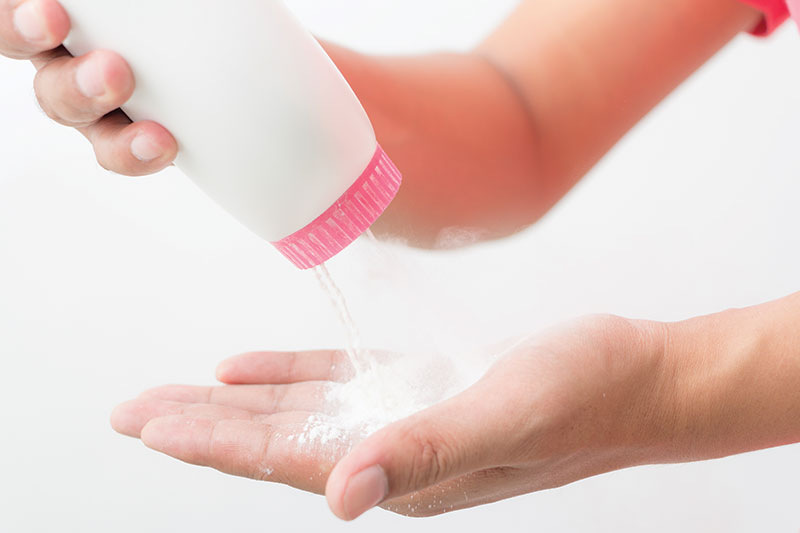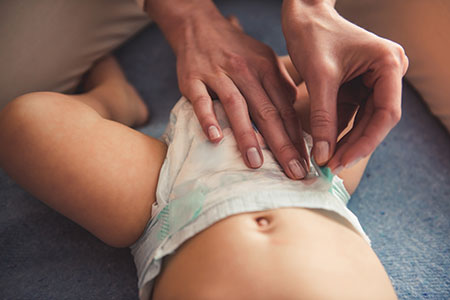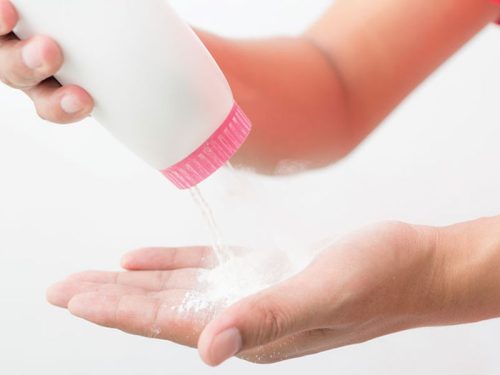No products in the cart.
Is your baby product hazardous?
It’s the duty of parents to exercise maximum care and caution in selecting and using baby products. In this month’s column, I highlight three widely used baby products which may be unsafe for new-borns and infants, writes Dr Gita Mathai

There is something endearing and lovable about a clean, cooing baby smelling of lightly fragranced talc. For generations, after bathing and diaper change, mothers have cleaned, wiped, patted dry and then powdered new-borns using soft powder puffs. But, the recent controversy over the possibility of Johnson & Johnson baby powder containing carcinogenic asbestos, has created fear and panic within parents worldwide. In July 2018, a US court awarded a record $4.6 billion (Rs.33,120 crore) payout to 22 women who testified before a jury in the state of Mississippi that J&J talcum powder was the cause of their ovarian cancer.
Infants are particularly vulnerable to hazardous chemicals and substances and it’s the duty of parents to exercise maximum care and caution in selecting and using baby products. In this month’s column I highlight three widely used baby products which may be unsafe for new-borns and infants.
Baby powder
Chemically, talc is a hydrous magnesium silicate with a chemical formula of Mg3Si4O10 (OH)2. It may also contain other porous materials such as metal silicates, silica, metal hydroxycarbonates, metal hydroxides, aluminium carbonates, and fragrances. Talc absorbs moisture and prevents friction and chafing from clothing.
Recent research has revealed that enthusiastic powdering of an infant’s body releases fine particles of talc into the environment. The baby is likely to inhale these particles which are often deposited in the respiratory tract, causing sneezing and wheezing. Post the J&J controversy, talcum powder has fallen into disrepute with talc found to have higher than permissible amounts of asbestos which is known to cause lung cancer. Powdering of the genital area in infant girls is likely to increase the chances of talc permeating into the reproductive system, predisposing them to developing ovarian cancer in adult life.
Bathing babies safely
Infants need to be bathed with very mild soap. It should not lather as much as adult soap, and should be fragrance-free. However many companies add fragrances to make baby soap attractive. But please note, fragrances (even if they are labelled hypoallergenic) can cause skin irritation and rashes.
To preserve the freshness of baby soaps, shampoos and lotions, chemicals of the phthalates and parabens group are sometimes added. To check and verify the presence of these substances, read product information listed on packaging carefully — they often begin or end with phthalates DEP, DBP, DEHP or paraben.
Therefore please note that after a baby is bathed and dried, there is no need to use talc powder.
Phthalates and parabens mimic hormones such as estrogen and exhibit a tendency to get deposited in the endocrine organs such as the ovaries. They disrupt the endocrine system of males and females. Reproduction may be affected by irregular ovulation, reduced sperm production and decreased sperm motility.
Formaldehyde is also used as a water-soluble preservative to prevent mould from growing in liquid soaps and shampoos. It prompts headaches, nausea and skin allergies. It can also result in blocked noses and irritating coughs, and is linked to respiratory and blood cancers.
Read: Homemade infant foods
Diaper dangers
 All infants have poor bladder and bowel control, so keeping them clean poses a challenge. Moreover constant washing with soap and water can dry and irritate a baby’s sensitive skin. On the other hand, inadequate cleansing can cause secondary bacterial infection. Also, cloth diapers, unlike disposable diapers with ‘dry technology’ retain urine and faeces, so delay in changing diapers is not advisable.
All infants have poor bladder and bowel control, so keeping them clean poses a challenge. Moreover constant washing with soap and water can dry and irritate a baby’s sensitive skin. On the other hand, inadequate cleansing can cause secondary bacterial infection. Also, cloth diapers, unlike disposable diapers with ‘dry technology’ retain urine and faeces, so delay in changing diapers is not advisable.
Therefore it’s not surprising that disposable diapers and baby wipes have become convenient and popular. However, both contain chemicals, some of which are added during the manufacturing process, others during packaging, and still other “secret ingredients” to remove baby stool efficiently. In addition to formaldehyde, diapers and baby wipes contain other skin irritants such as hydroquinone and dioxin. Repeated use of baby wipes can cause itching, soreness, red skin, and blisters.
The best option is coconut oil, an excellent, safe, natural moisturiser. It can be applied regularly before a bath to prevent chafing, dryness and excoriation of the skin.
Read: Best Parenting Apps
Formula milk
Most mothers stop breast feeding their infants after six-seven months and switch to formula milk powder. Ideally, infants should be breastfed exclusively for six months and then gradually weaned on to semi-solid/solid food. Bottle feeding should be avoided altogether.
Several powdered milk brands are available in the market with each claiming superiority over the other. All baby milk powder is made from cow or buffalo milk or a mix of both, and contains high amounts of milk protein or casein. Therefore it takes longer to digest and feeds are less frequent. It can also cause bloating and discomfort in the stomach. Moreover infants can develop ‘cow’s milk allergy’ or intolerance, resulting in skin rashes, eczema, diarrhoea, and even bloody stools.
There is also strong likelihood that harmful substances in the environment and cattle fodder can find their way into milk. Many of these chemicals can’t be removed by processing. In a recent study 65 percent of baby milk products tested positive for arsenic, 36 percent for lead, 58 percent for cadmium and 10 percent for acrylamide. All these chemicals pose danger to an infant’s brain and cognitive development.
Traditional weaning foods and cereals such as rice, dal, wheat and ragi, fleshy fruits such as bananas and apples and potatoes and carrots, are the best to wean children off breast milk. Precooked, packaged baby foods claim to contain identical ingredients, ‘wheat-apple,’ ‘rice-dal,’ and ‘wheat-vegetable’, free from chemicals, flavouring and preservatives, but these claims are often unwarranted.
Moreover, since readymade baby food is packaged and stored in plastic or metal containers, their particles can leach into the food. It also remains on supermarket shelves for months until the ‘best used by’ date expires.
Raising and nurturing an infant has never been an easy job for parents. To nurture infants into healthy adults of the 21st century, parents have to be vigilant against convenient but unsafe baby products flooding the market.
(Dr. Gita Mathai is a Vellore-based paediatrician and author of Staying Healthy in Modern India)
Also read:Infant massage benefits















Add comment